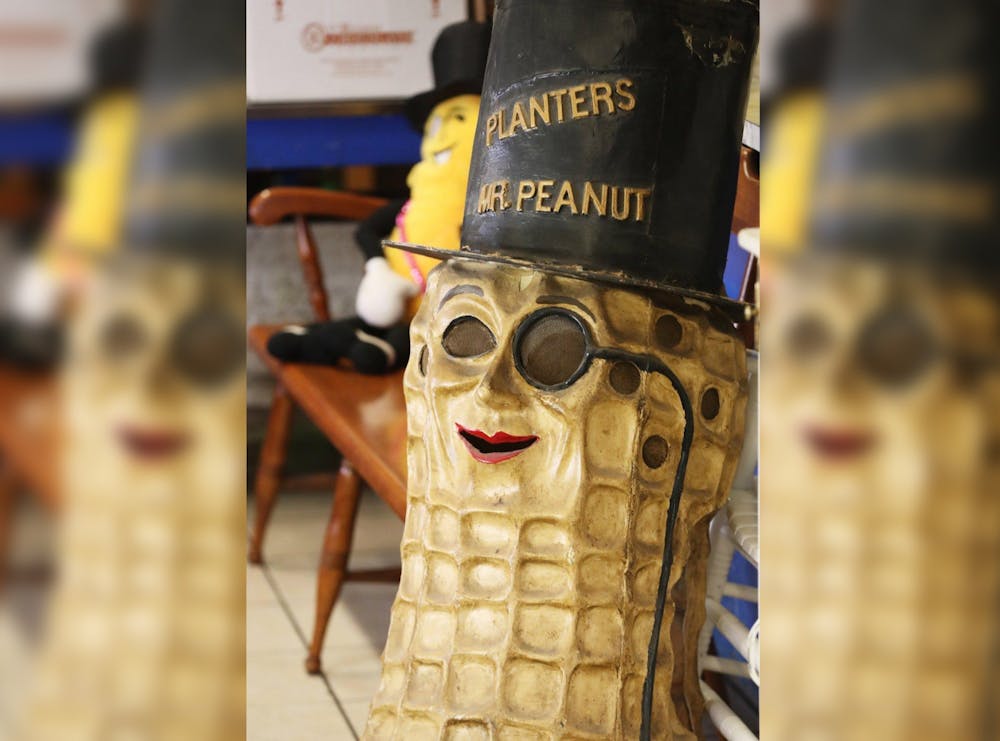Sacrifice can be redemptive. Death can be devastating. The passing of Planters' mascot Mr. Peanut was neither. As part of a Super Bowl commercial, Mr. Peanut let himself fall into a canyon to save actors Wesley Snipes and Matt Walsh.
If anything, his death is a condemnation for the brand and the advertisers responsible for this humorous marketing stunt. While it may seem innocuous, it is crucial to understand that the goal is to sell consumers on a product. Leveraging death in the way this marketing campaign does is maybe a little tasteless at best and wields trauma like fish bait at worst.
The thinking, apparently, was to riff on the deaths of other fictional characters of the past few years, particularly Iron Man in "Avengers: Endgame."
Mike Pierantozzi, one of the creatives responsible for the ad campaign, explained why Planters made the baffling decision to kill off the mascot.
“We're trying to keep this as close to reality as possible,” Pierantozzi told CNBC. “I think we looked at Twitter and how things sometimes find their way onto Twitter, and we kind of tapped into those things.”
This seems to be tapping into elements of spoiler culture, the idea that films can have their twists and biggest moments circulated on social media before many have had the opportunity to see it. A good example of this is how the details of character deaths in “Avengers: Endgame” were revealed on Twitter in the first few weeks of its theatrical run.
In a similar manner, while many might not have seen the Planters Super Bowl ad released over a week ahead of the Super Bowl, they may likely know about Mr. Peanut’s death from second hand sources, such as Twitter.
The massive difference is deaths in Marvel movies happen to accommodate the storytelling, the quality of storytelling here being irrelevant. Mr. Peanut met his violent end to upsell some honey roasted cashews.
This campaign trying to frame the incident as a celebrity death shifts my reaction from “That’s tacky” to “That’s borderline unethical.”
Planters has gone as far to push the Twitter hashtag “#RIPeanut” with a tone seemingly mocking the social media mourning of past celebrity deaths.
There’s a temptation to link this advertising stunt to the last few years of snarky Twitter brands that’s gradually led to things like the SunnyD account tweeting “Why am I like this?” The joke here is the juxtaposition of a serious sentiment coming from an account for an orange-flavored drink.
The issue with this ad is that this almost seems like it’s poking fun at people who turn to social media in moments of crisis. In trying to seem more relatable, brands are attempting to reflect the darkest parts of the human experience.
We are seeing more and more “relatable” posts even coming from local brand accounts, such as the Indiana Memorial Union, which often uses common Twitter jokes to advertise the IMU’s services.At least IU doesn't have a mascot.
My hope is that killing off mascots isn’t the universal next step in marketing the same way relatable content has become the standard. Social media should be a place to discuss real tragedies without cynical corporations cheapening the discourse by wielding a fictional death in this way.
Liam O'Sullivan (he/him) is a senior studying film. He will stop at nothing to write or direct a "Star Wars" film.






